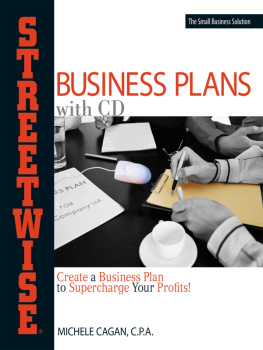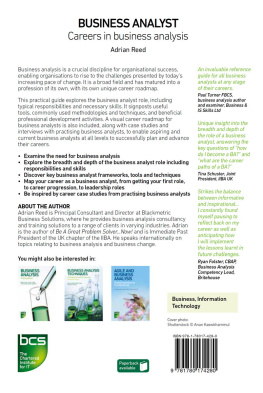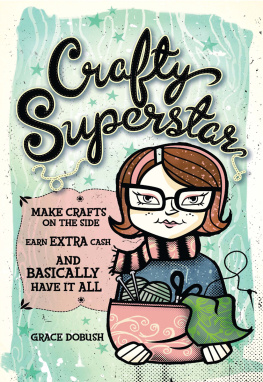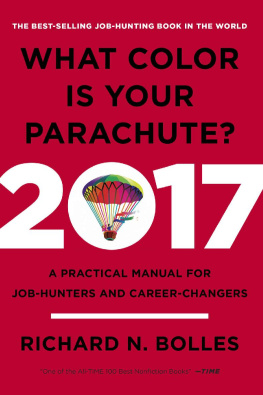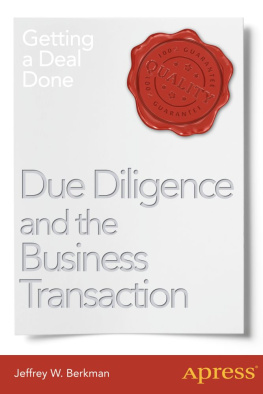Thank you for downloading this AMACOM eBook.
Sign up for our newsletter, AMACOM BookAlert , and
receive special offers, access to free samples, and
info on the latest new releases from AMACOM,
the book publishing division of
American Management Association.
To sign up, visit our website: www.amacombooks.org
To learn more about the American Management
Association visit: www.amanet.org

The copyright information for this title may be found at the end of this eBook file.
Dont Pay for Your
MBA

Dont Pay for Your
MBA
The Faster, Cheaper, Better Way
to Get the Business Education You Need
LAURIE PICKARD

CONTENTS
by Mike Hoefflinger
INTRODUCTION

MOOC Your MBA
Our ability to learn what we need for tomorrow is more important than what we know today.
GEORGE SIEMENS
This book traces its birth to a balmy evening in 2013. I had just finished a three-year assignment as a Peace Corps volunteer in the rural countryside of Nicaragua. Now living in Nicaraguas capital, Managua, I was barely scraping by as a part-time consultant for the local branch of the World Bank. Having worked for nearly four years for low and sometimes no wages, I was eager to land a proper job in international development and make some decent money. Searching online through endless job postings, I grew more and more depressed. Nothing seemed to match my resume: a BA in politics, an MA in geography, years of volunteer service, and a brief stint as a project manager.
Every international development job, it seemed, called for a degree in business, finance, or economics. I began to wonder if, rather than looking for a job, I should cut to the chase and start researching MBA programs. Newly married, I was excited to join my husband as he pursued his career in foreign aid. That meant a lot of globe-trotting, as new assignments took us to far-flung corners of the world. I had concluded that my own career depended on getting a first-class business education, but how on earth would I pay for it? I couldnt saddle my new marriage and my early career with huge student debt.
Quite unexpectedly, the answer to my dilemma showed up on my doorstep. My husband and I were enjoying a chat with our friend Julio on the patio of our house, tossing around ideas about our future prospects. Julio could barely contain his excitement about his recent experience with MOOCs. Mooks? I asked. He laughed, Spelled M-O-O-C. It stands for massive open online course. Im taking one to brush up on finance. You wouldnt believe it. The professor teaches at NYU, and hes famous for his work on corporate valuation. Its truly world-class. And it doesnt cost a dime! Ive taken a look at other courses from Wharton, MIT, and Stanford. I could practically refresh my MBA with the courses that are out there.
I felt a big electric charge when I heard that. Imagine studying with the worlds top professors for the price of an Internet connection! I could picture myself earning the equivalent of an Ivy League MBA while sitting under a palm tree or on a beach blanket in Southern France.
The next morning I popped open my laptop and typed in Free online business courses. Wow! The options amazed me. I could study management, marketing, finance, accounting, human resources, operations, innovation, and entrepreneurship with professors at the worlds best business schools. Could I actually stitch together enough of these courses to fashion my own tailor-made degree in business? I could. And I did! I chronicled the entire journey in a blog called No-Pay MBA.
Fast-forward three years. I now live with my husband in the small East African nation of Rwanda, applying my self-made, just-in-time business education as a private-sector development adviser in the offices of the United States Agency for International Development. I make a good income and spend a lot of time moonlighting as an adviser to all of the learners worldwide who read and subscribe to my No-Pay MBA blog. I have written about the subject of self-directed business education for the Financial Times, been quoted in the Wall Street Journal and Bloomberg Business, and received write-ups in both Fortune and Entrepreneur. My nontraditional business education has opened many doors.
You probably bought this book because you are already thinking about pursuing your own nontraditional business education. If so, you could probably use a guide through the nooks and crannies of this phenomenal new way to obtain your own self-tailored No-Pay MBA. I will be delighted to serve as that guide.
Welcome to the Future of Education and Work
In the digital age, business education has gone viral. No longer locked securely behind the ivied halls of elite universities, the knowledge, skills, and frameworks that make up a first-class business education have become virtually free and available to anyone with a laptop and an Internet connection. Welcome to the wonderful world of online business education: massive open online courses (MOOCs) offered by elite schools, short training courses produced by industry professionals, and talks by world experts, all available with a tap on the keypad or a click of a mouse.
Those following in their footsteps will need to retool themselves continually throughout their careers. If you dont want to risk ending up in the breakdown lane of the information highway, youd better figure out how to keep your skills fresh and relevant. Lets face it: The degree you earn in your twenties no longer guarantees gainful employment throughout a forty-plus-year career.
If you pursued an MBA the regular way, youd end up taking a lot of required courses that you may or may not be able to use right away. Years later, would you remember what you studied in Supply Chain Management 101? Worse yet, what if you never ended up needing that information at all? Still, business students in traditional programs must invest valuable time and money to complete course requirements that may or may not fit their particular situations. Instead, why not tailor your business education to fit your unique and specific needs? Professor George Siedel, who teaches a popular MOOC on negotiation, once described traditional business school as a just in case education, where students learn most topics just in case they might come in handy later. But just in case doesnt square with the world of work that we now inhabit. Increasingly, people need skills that can be acquired and refreshed just in time. New educational tools like MOOCs can not only help you acquire specific skills just when you need them, they can refresh a skill that has faded over time. Revisiting a course like Professor Siedels before your next salary negotiation could mean the difference between a lackluster package and a competitive one.
Employers, too, have begun to value more than conventional degrees, university brand names, and even academic grades, none of which guarantee superior performance on the job. Just take a look at Google, one of the hottest employers in the world. Laszlo Bock, senior vice president of People Operations at Google, discusses the companys hiring practices in his 2015 book
Next page


